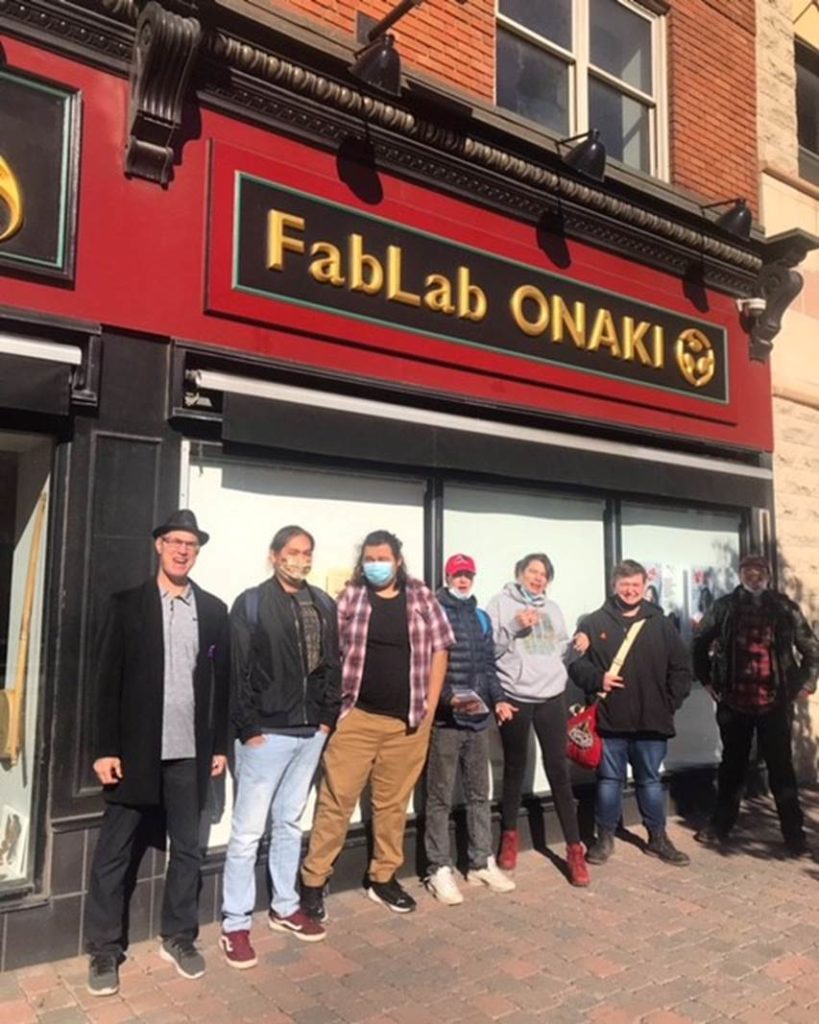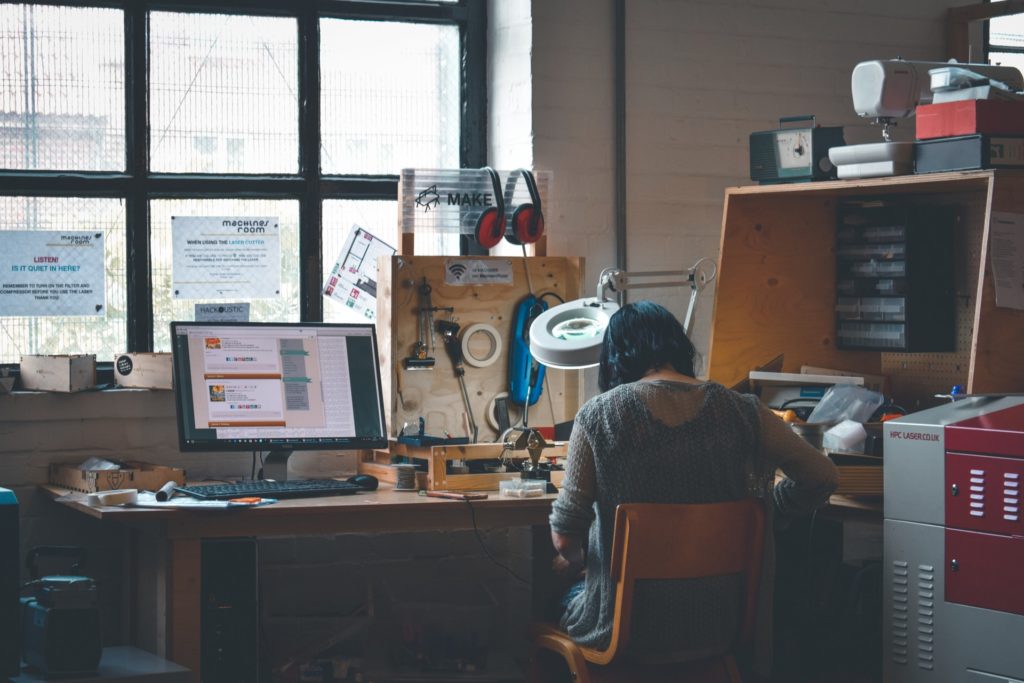Grâce au FabLab Onaki, mis en place par le Centre d’innovation des Premiers Peuples (CIPP) en 2018, des jeunes Autochtones ayant décroché du système scolaire peuvent s’initier aux technologies et découvrir de nouveaux horizons. Du même coup, ils prennent confiance en eux et en leur potentiel d’apprentissage.
Céline Auclair, directrice générale du CIPP, n’est pas peu fière lorsqu’elle parle du FabLab Onaki, le premier FabLab autochtone à avoir vu le jour au Canada. Depuis la création du laboratoire de fabrication numérique, les cohortes de jeunes se sont succédées et les succès sont au rendez-vous. « C’est tout simplement fabuleux ce que ces jeunes peuvent accomplir. Ils progressent par petits pas, en fonction de leur intérêt, mais au bout de la formation, ils ont fait un pas de géant. Ils sont fiers d’eux et plus positifs envers l’avenir », dit-elle. Et c’est sans parler des compétences numériques qu’ils développent.
Un fablab (laboratoire de fabrication numérique), c’est un lieu de jeu, de création, d’apprentissage, d’invention, d’innovation et de mentorat.
Concrètement, le FabLab Onaki, situé à Gatineau, accueille des cohortes de jeunes pour des parcours de formation de 5 mois. Un deuxième espace de création, nommé FabLab Wawacte (pour voie lactée), a aussi ouvert ses portes cet automne à La Tuque grâce à une collaboration avec le Conseil de la Nation atikamekw (CNA), les chefs des communautés atikamekw ainsi que certains partenaires économiques.

Dans l’esprit d’un FabLab, c’est la démarche qui compte avant tout, il est permis de se tromper et de recommencer. L’expérimentation et la coopération entre les apprenants sont valorisées. Par le biais des différents équipements technologiques dont dispose le laboratoire, ils peuvent créer des prototypes, puis des objets à partir d’ordinateurs, de découpeuses laser, d’imprimantes 3D, etc. Les traditions de créations artisanales et les savoirs autochtones peuvent aussi trouver de nouvelles expressions avec la technologie.
« Les jeunes qui passent par nos formations augmentent définitivement leur niveau d’employabilité. Certains choisissent aussi de poursuivre leurs études. Le simple fait qu’ils se retrouvent rapidement en action dans la laboratoire, qu’ils réalisent des projets concrets, leur donne confiance en eux », fait remarquer la directrice.
Pour le moment, les « diplômés » du laboratoire se voient décerner des badges numériques qui reconnaissent les compétences qu’ils ont développées. Mme Auclair aimerait bien qu’un jour, une forme de reconnaissance des acquis plus formelle leur soit attribuée.
Une déclinaison mobile et une autre toute féminine
Afin de rejoindre plus de jeunes, le CIPP a développé différentes déclinaisons du FabLab Onaki, comme le FabLab mobile qui se déplacent dans les communautés autochtones de la province pour des sessions intensives de six semaines. « Il peut parfois être complexe pour les jeunes de quitter leur milieu de vie. En nous rendant dans leur communauté, nous leur permettons d’accéder à de nouvelles possibilités », indique Mme Auclair. La demande est grandissante.
Une cohorte exclusivement féminine est aussi en cours de recrutement et devrait débuter en janvier 2022. « La technologie a aussi besoin d’être démocratisée auprès des femmes. Nous avons remarqué qu’elles ont de la difficulté à prendre leur place dans certains contextes et nous voulons aussi leur donner l’opportunité d’exploiter leur plein potentiel. » Cette nouvelle cohorte mettra l’accent sur l’entrepreneuriat afin d’encourager les femmes à commercialiser leurs créations artistiques. En ce sens, le programme développera aussi des compétences comme la création de sites Web, le marketing et la modélisation d’entreprise.
Une démarche qui suscite les honneurs
Le moins que l’on puisse dire, c’est que le FabLab Onaki attire l’attention. Des fablabs du même type se mettront au service des jeunes autochtones de l’Ontario et du Nouveau-Brunswick en 2022, grâce à l’appui de l’équipe du CIPP.
En 2020, l’initiative a reçu une mention d’honneur dans la catégorie Renforcement des communautés du Prix de l’impact social. Plus récemment, en octobre dernier, elle a reçu le Grand Prix du jury du Prix de reconnaissance Jeunesse en littératie numérique*.
En complément :
– Le FabLab Onaki, un atelier où technologie et culture autochtone se rencontrent
– Des autochtones fabriquent leur bonne étoile
*C’est dans le cadre de l’obtention de cette reconnaissance que le FabLab Onaki s’est mérité un article dans l’École branchée, puisque notre média était partenaire du prix.






